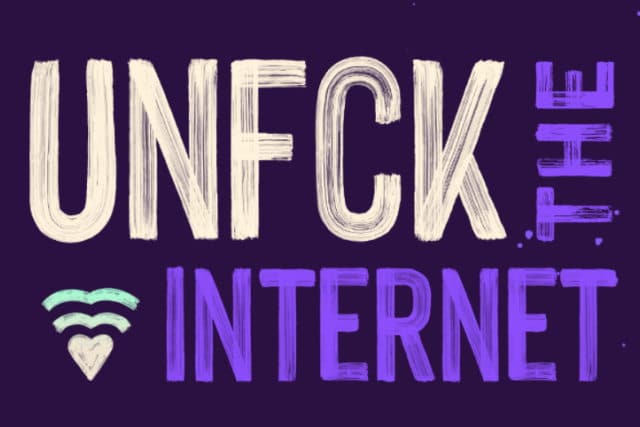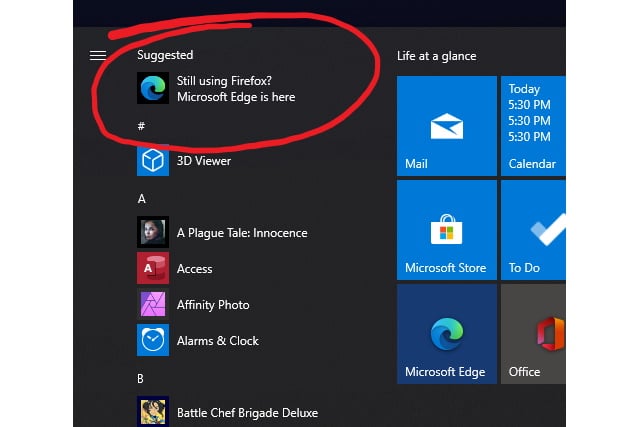
Mozilla issues important patch to stop Firefox triggering Windows 10's drive corruption flaw
A few weeks ago, we wrote about a bug in Windows 10 which could lead to an NTFS drive being formatted simply by opening a folder. The issue affects the $i30 NTFS attribute, and it can be triggered in Explorer as well as web browsers.
Now Mozilla has released a key update to Firefox which prevents it from activating the bug. To be protected, you need to be running at least Firefox 85.0.1.

Firefox 85 blocks so-called 'supercookies' as Microsoft Edge 88 boosts performance and security
It’s been a busy few days for web browsers. Last week, Microsoft Edge 88.0 rolled out several major new features, including a new sleeping tabs feature, while today sees the launch of Firefox 85.0.
Firefox 85 arrives with three new noteworthy features. The first is protection against so-called 'supercookies', trackers that are able to hide within browsers to track users online even after they’ve cleared cookies. Firefox achieves this by isolating the cookies so they can’t follow your progress between sites.

Firefox 83 unveils improved page loading and responsiveness, HTTPS-only mode
Mozilla has released Firefox 83.0, the latest version of its open-source, cross-platform web browser. A mere 28 days after the last major release, and version 83 makes its bow.
Despite the short time between releases, version 83 manages to pack in more performance improvements, a new optional HTTPS-only mode, support for pinch zoom on touchscreens, and compatibility with new Apple Macs running the M1 chip.

Mozilla: The internet is fcked, but together we can unfck it
Ahead of the 2020 United States presidential election, Mozilla is calling Twitter and Facebook to "unfck the internet".
The Firefox-maker is seeking "an honest internet for the US elections". It's something of an ad campaign for its own web browser, but it touches on legitimate worries many people have about the use and abuse of social media. Specifically, there are concerns about how social media platforms are used to spread misinformation.

Firefox 78 and Firefox 78 ESR unveil new privacy protection features
Mozilla has released Firefox 78.0, the latest in a long line of major updates to the veteran browser. Available for Windows, macOS and Linux, the new release is joined by Firefox ESR 78.0, the first major update of the Extended Support Release browser since Firefox 68 last year.
The release sees the Privacy Protections screen renamed to Protections Dashboard. It also gains two new features: the ability to track the number of resolved breaches directly from the dashboard itself, plus an option to check to see if any saved passwords have been exposed in a data breach. Type about:protections to access the dashboard quickly.

Firefox 76 expands Lockwise password manager capabilities
Mozilla has released Firefox 76.0 for Windows, macOS and Linux, the latest in its long line of major updates to the venerable open source browser.
The chief focus in this new release is the further development of Mozilla’s Lockwise password manager. Users gain several enhancements including alerts of website breaches with prompts to update all online accounts that share the same password.

If you used Firefox to access Twitter, your non-public info may have been exposed
Mozilla Firefox is damn good web browser that is largely open source and focuses on privacy and security. That is why I choose it as my default browser on both Windows 10 and Linux-based operating systems such as Ubuntu and Fedora. Many people wisely choose Firefox for the same reasons.
Sadly, today, we discover that if you have been using Mozilla Firefox to access Twitter, you may have had non-public information data saved locally to cache. Twitter makes it clear that other major browsers, such as Google Chrome and Apple Safari, are not affected. Thankfully, the social network says it fixed the issue on its end.

Firefox 74 tightens add-on security, simplifies importing data from Microsoft Edge
Mozilla has released Firefox 74.0 for desktop, along with Firefox for Android 68.6.0 and Firefox ESR 68.6.0.
Firefox 74.0 ships with several new features, none of which are jaw-dropping, but all of which serve to further improve the browser’s privacy, security and usability. In addition, the Facebook Container add-on now gives users control over which sites are blocked from reporting back to Facebook.

Mozilla is enabling encrypted DNS-over-HTTPS (DoH) by default for US Firefox users
Firefox users in the US will soon have DNS-over-HTTPS (DoH) enabled by default. Mozilla is in the process of rolling out the privacy- and security-focused feature after an intensive period of testing.
DoH is an option for anyone outside of the US, but it will have to be manually enabled. Once enabled, DNS lookups are routed through Cloudflare or NextDNS using an encrypted HTTPS connection, hiding it from third parties such as your ISP.

Google helps devs speed up Firefox with open source Lighthouse extension
Google has released a Firefox version of its Lighthouse browser extension, giving developers an easy way to test the performance of websites and web apps.
The open source extension makes use of the PageSpeed Insights API, and the new release brings Firefox in line with Chrome which has had a version of the extension for a few years now. The ultimate aim is to make it easier for developers to improve app and page performance by encouraging better practices.

Microsoft uses Start menu ads to promote its Edge browser
Microsoft recently released the Chromium-based version of its Edge browser, and now the company seems to be on an all-out offensive to promote it.
Ads have started to appear in Windows 10's Start menu suggesting that Firefox users should try Microsoft Edge instead. This is not the first time the Start menu has been used by Microsoft to promote software, and it's a move that is likely to win the company a few enemies.

Firefox 72 improves site notifications tool, rolls out picture-in-picture video to Mac and Linux
Mozilla has released Firefox 72.0 for desktop, along with Firefox for Android 68.4 and Firefox ESR 68.4.0.
Mac and Linux users gain the picture-in-picture video feature introduced for Windows in Firefox 71. Fingerprinting scripts are now blocked as standard with this new release, while intrusive pop-up notifications from websites have been confined to the Address Bar to prevent disruption when browsing.

Firefox 72 will let users delete data the browser collects about them
As we entered 2020, the California Consumer Privacy Act (CCPA) came into force, giving residents of California GDPR-like rights and protection. One of the rights afforded to people by the new law is to request that companies delete their user-specific data.
To comply with CCPA, Mozilla has announced that Firefox 72 -- due for release next week -- will include a new option that enables users to request the deletion of desktop telemetry. Although CCPA is only applicable in California, the new setting will be made available to Firefox users around the world.

YouTube has a new interface -- here's how to disable it if you hate the new look
Google has updated YouTube with a new-look interface on tablets and the desktop. Thumbnails are bigger and easier to see, some superfluous links have been removed, and there are changes to the way the video queue works.
But, of course, not everyone likes change. If you're not a fan of the new interface, there are steps you can take to stick with the old look.

Firefox users are being targeted by malicious sites that exploit a known bug to lock up the browser
Users of the Mac and Windows versions of Firefox are being targeted by malicious sites that display a fake warning message and then completely lock up the browser.
Hackers are taking advantage of a bug in Mozilla's web browser to tamper with the software and render it unusable without the need for user interaction. At the moment there is no fix, and the problem is wreaking havoc and causing distress.
